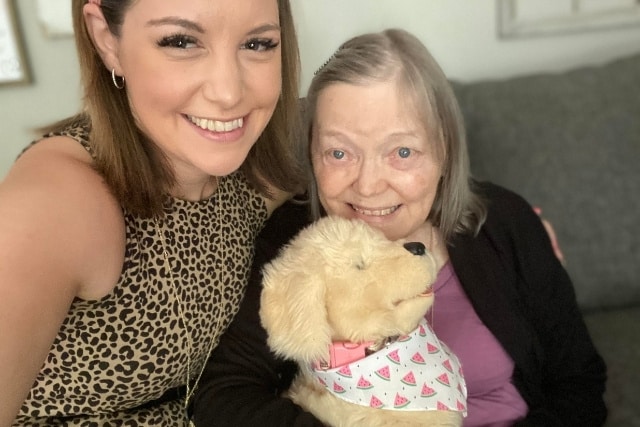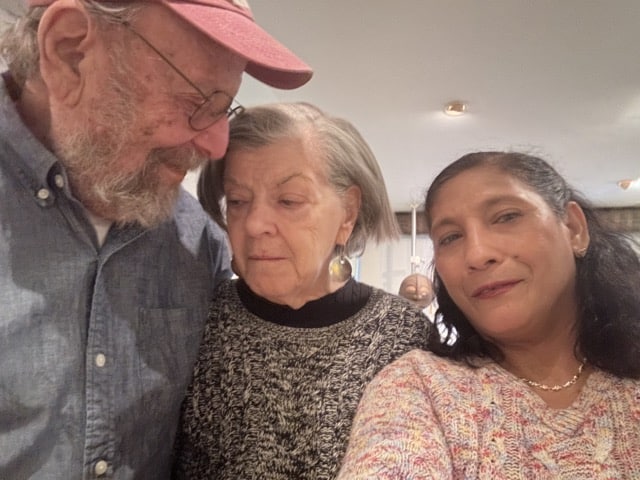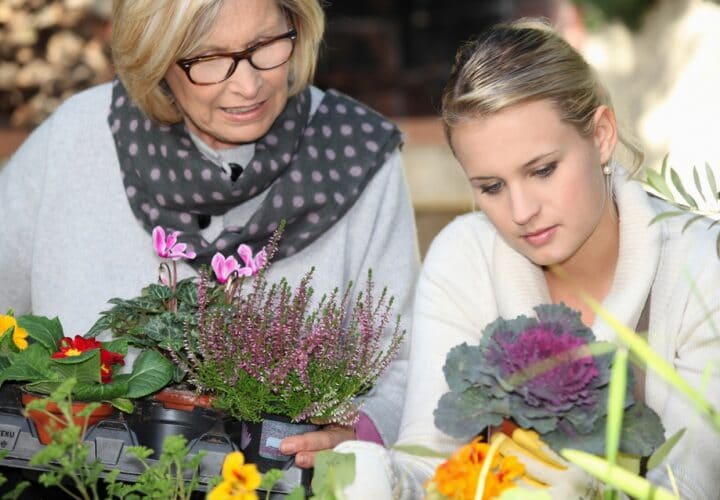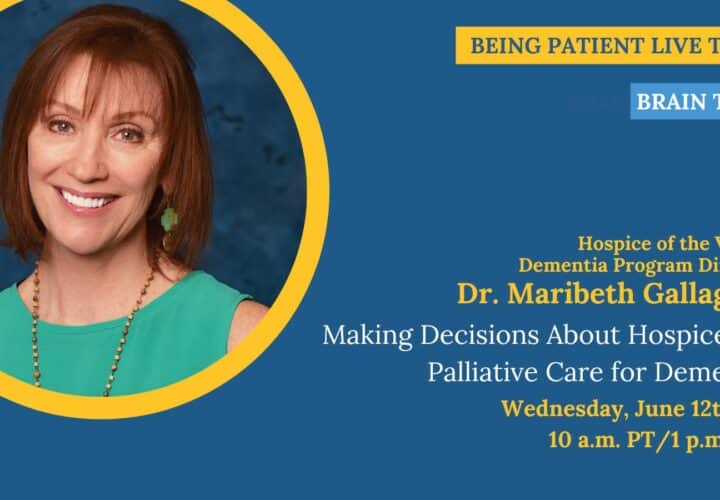How can you find moments of joy within a dementia diagnosis? Caregivers share the unconventional things they did to lean into happiness.
A dementia diagnosis can change everyday life significantly for the person diagnosed and their caregivers. For people living with dementia, tasks that once felt easy, like getting dressed or being on time for appointments, can suddenly require a lot of assistance. How can caregivers still find moments of joy in the midst of this time of change?
From finding humor in the quirky behaviors to planning new kinds of travel adventures, here, in three of our favorite recent VOICES essays, writers share what joy looks like in their lives as caregivers.
‘Leaning Into the Comedy’ Helped While Caring for Mum Through Alzheimer’s
‘Leaning Into the Comedy’ Helped While Caring for Mum Through Alzheimer’s
Tim Mehrens, one of seven children, describes caring for his mom as a team effort, made easier by finding the comedy in his mom’s unexpected behaviors. “Even as Alzheimer’s took hold, fragments of her vibrant personality would break through, often in ways that were hilariously unexpected,” Mehrens writes of his mother.
They found moments of connection despite the progression of her battle with Alzheimer’s. When hearing her children telling a story, Mehrens’s mother would immediately claim it as her own, adding her own comedic spin. But he didn’t jump in to correct her; instead finding joy in the animated new retelling.
Whether his mom was sneaking sips of sherry or insisting she’d spent the entire day working in the garden when she hadn’t stepped foot outside, Mehrens found that laughing about her quirky behavior brought joy to a sometimes grim situation.
Travels With My Father
Oscar Arvizu and his father have explored Alaska, Hawaii, Mexico, the United States, and beyond. Travel was something they both enjoyed, and after a dementia diagnosis, the pair made it their mission to continue.
“Since I was a child, my father took me everywhere with him,” writes Arvizu. “I lost my mother when I was seven, and from that moment on, he never left my side.”
Treating Alzheimer’s like their previous expeditions, they made it a journey they would walk together. After his father’s diagnosis, Arvizu took extra effort to prepare for their trips, and found that simple things like listening to his father’s favorite music in the car and involving him in their travel decisions put him at ease.
“We had always been lifelong travel buddies and always had each other’s backs… getting out of the house and exploring new places was always a favorite activity for us,” writes Arvizu. “It was beneficial for both of us, keeping our bodies and minds engaged.”
Within Dementia, Love Remained
Patti LaFleur was in her early twenties when her mother was diagnosed with younger-onset dementia, and she went on to serve as her caregiver for 10 years, while navigating her own path as a young adult.
LaFleur became her mother’s biggest advocate. “I remember the challenges and the fears, but it was the depth of our bond that united and sustained us — and which defined our journey,” LaFleur writes. “As I walked alongside Mama, I found a new kind of strength. I became her advocate and unwavering champion. I discovered the power of empathy, compassion and community.”
As LaFleur’s mother’s condition became more severe and she couldn’t remember who her daughter was, LaFleur found new ways for them to connect and for her mother to express herself that didn’t involve speaking, like cooking simple recipes, painting, and dancing. Since her mother’s death, LaFleur continues to be an Alzheimer’s advocate in her role at Lorenzo’s House, a virtual organization offering free programming for families impacted by younger-onset dementia.
Tell us your story
VOICES is Being Patient’s series of essays written by people who are or have been a caregiver to a loved one living with Alzheimer’s disease or another form of dementia.
Our community of caregivers and Alzheimer’s advocates, and the stories they share, serve as a powerful reminder of how much people can do when they don’t feel alone. If you would like to contribute to our community by sharing your caregiving experience, please reach out to lauren@beingpatient.com for details on how to contribute.




